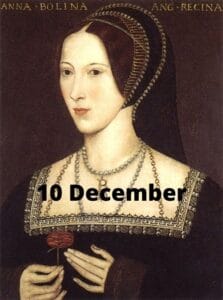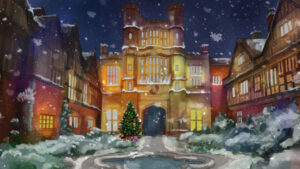 Time for another Anne Boleyn Files Advent Calendar treat! I do hope you’re enjoying them. We have lots more to come!
Time for another Anne Boleyn Files Advent Calendar treat! I do hope you’re enjoying them. We have lots more to come!
Today, we have an excerpt from historical novelist Rozsa Gaston’s forthcoming novel, so a wonderful sneak peek for us. Thank you so much to Rozsa for sharing it with us. What a treat!
To enjoy today’s treat, simply visit the Advent Calendar by clicking here.
Then, why not enjoy another historical treat by heading over to the Tudor Society? Find out who is hiding in the very Christmassy Coughton Court today.
Simply go to https://www.tudorsociety.com/advent2020/!
And in case you missed the daily Teasel’s Tudor Trivia videos from Advent last year, here is Teasel’s 10th December treat:
And, if you want even more Tudor history goodness, then here is today’s “on this day in Tudor history” video:
and here’s last year’s one too:
